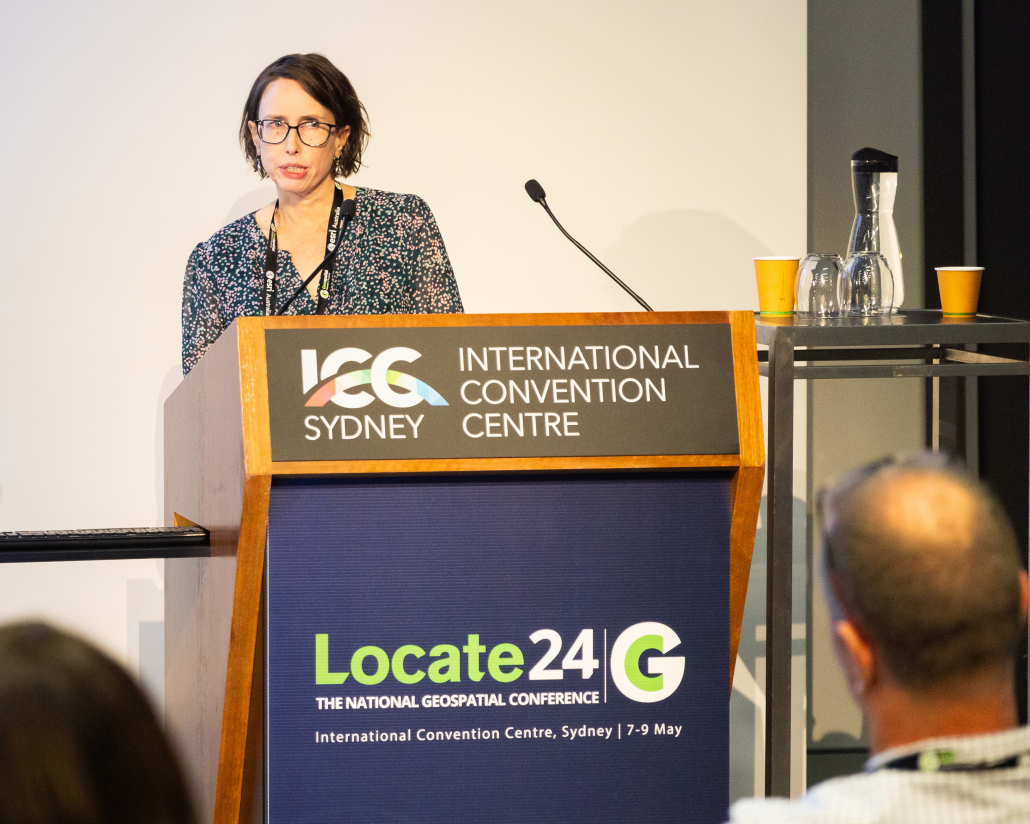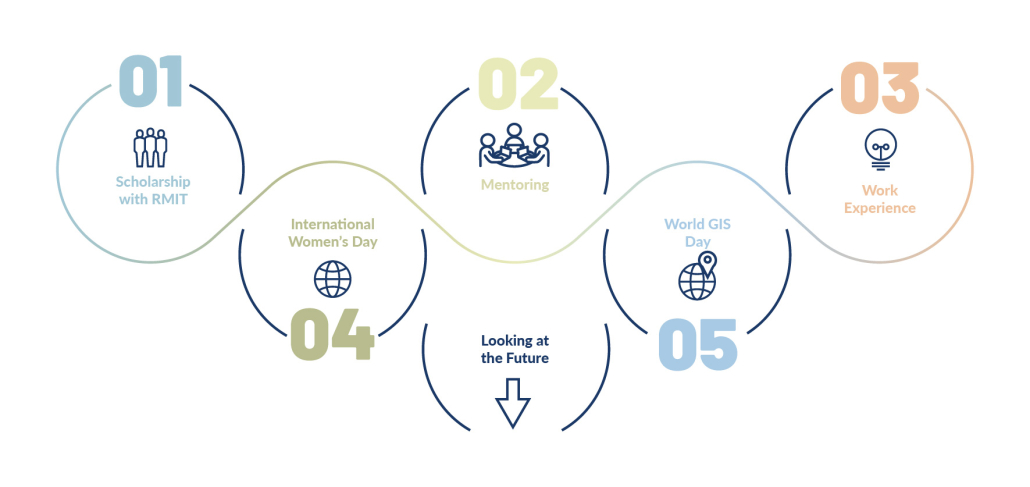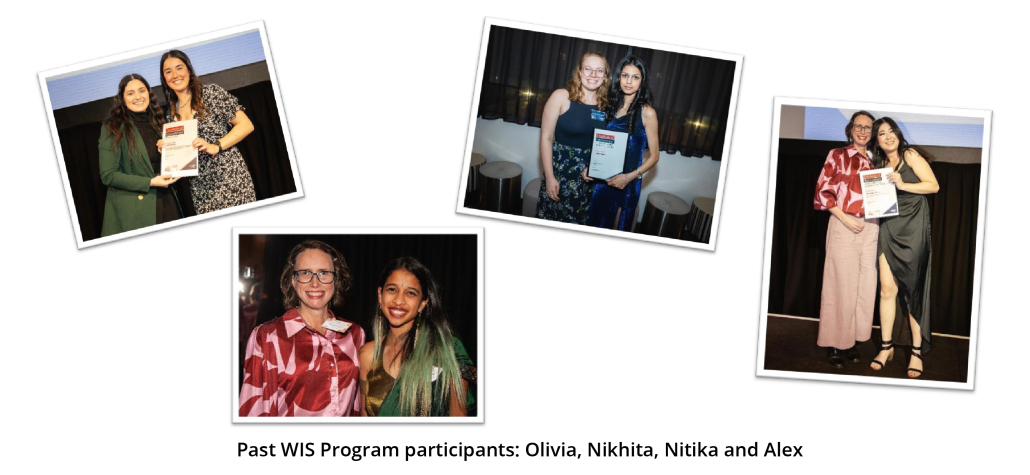Securing a Future for Women in Spatial
At GCA’s Locate24, our Senior Geospatial Analyst, Amanda Tyrer presented on our Women in Spatial Program during the Workforce Development stream. She also joined a panel discussing; how we can involve more high school teachers in championing and developing geospatial career awareness sparking the interest of young women and people with diverse backgrounds, the issue of where ‘geography’ sits in the current curriculum and therefore where geospatial should fall and should maths and science teachers also be involved.
In this article, we dive into the details of the Spatial Vision WIS program, how it came about and what’s involved.
Why do we need a Women in Spatial Program?
You only need to look around your own workplaces to notice a significant lack of female representation in our industry, particularly at the more senior roles. Why is this? There is no reason for this disparity in genders. At Spatial Vision, our senior management team recognised a shortage of women and retention of women in the geospatial arena at all levels and asked, what can we do to encourage more women into the sector? This led us on a journey to encourage, retain and nurture more women into the field. This is why we established our Women in Spatial (WIS) program. It’s not a large commitment or time investment, but we are beginning to make an impact.
“My story began with a love of maps and what can now be described as being a human GPS!” says Amanda. “Like a lot of kids, I sat in the middle seat at the back of the car with a Melway or Vicroads mapbook on my lap navigating our trip. I’ve always loved maps and discovered in high school, I could pursue mapping as a career, and I was determined to make that happen!”.
But Amanda’s story is not typical. Back in the 90’s there were many women studying cartography and surveying at RMIT, so what has happened since? Times have changed, technology has developed, and many people shift careers as they learn and grow. Unlike Amanda, who has remained in the geospatial sector for nearly 30 years.
“In the past five years I have become more involved in the Spatial Vision WIS program, and I’m now one of the mentors and members of our Diversity, Equity and Inclusion working group; this has allowed more discussions and activities to take place.”
What does our WIS Program involve?
Our program is initiated with a Geospatial Scholarship with RMIT and has been offered since 2018. It’s available to students who identify as a woman, enrolling in their first year of geospatial science. It is a monetary scholarship that contributes to the student’s costs of study and provides opportunities to work with us through vacation employment and work-integrated learning.
“A couple of years ago we introduced a mentorship program as well,” adds Amanda. “Students receive around eight, 1-hour sessions with myself and my colleague, Climate Consultant, Rhiannan Mundana.”
Some of the sessions we include are:
- Introductions to our staff and an office tour
- Networking opportunities
- Setting up a career brand
- The graduate process and insights
- Career pathway ideas
- Consulting
- An understanding of business communication tools
- How to manage stress
- How to interpret job advertisements and how to apply
- Resume and cover letter writing
- Preparation for the interview process.
“We also invite our mentees to in-office events, staff meetings, geoRabbles etc, to give them as much exposure as possible without overwhelming them. We stay connected with our mentees to see how they are going and where they end up. It’s a continuous support system.”
Mentees are also offered opportunities to work at Spatial Vision through vacation employment and work integrated learning. This can depend on projects we are currently working on and if they align with subjects being studied. We also offer this to other students when work permits.
Olivia and Nikhita were in lockdown for most of their course and our sessions. This had its own challenges but we made up for it when lockdowns were lifted. Olivia graduated from RMIT in 2022 and went onto work at Jacobs in their graduate program. Nikhita graduated in 2023 and we are now lucky enough to have her as our Graduate Cadet for 2024. Nitika is in her 3rd year of Geospatial Science and Alex in her 2nd.
“This group of girls are go-getters! They see what they can achieve and what they need to do to get there and go for it. They are involved in the RMIT social scene and part of geoRabble, GSC and more. The possibilities for their careers are endless and their enthusiasm is incredibly inspiring. It’s not only the students who get something out of this journey with us, both Rhiannan and I have learnt so much from them as well.”
International Women’s Day 2023
We held an in-office event to discuss potential barriers in the workplace for women. We used discussion cards to facilitate a constructive workshop to raise ideas on how we might overcome these barriers as an organisation. Topics included unconscious bias, returning to work after having a baby, lack of awareness of careers in STEM/discouraging female students into STEM, lack of mentoring/role models, keeping women in industry/not enough senior leaders, and gender stereotypes.
As a result of this discussion, we’ve implemented a female board member appointment, supplied sanitary products in bathrooms, introduced pro-nouns on email signatures, made more women visible in our marketing campaigns and established a high school engagement program.
World GIS Day 2023
We held a panel discussion focused on encouraging the next generation of geospatial super stars. Our panel included Dr James Driscoll from Monash University, Libby Hillman from Geography Victoria, Alex Wong our 2023 WIS mentee, and our own Strategic Consultant Georgina Race.
The audience, comprised of geospatial students, educators and sector professionals, we enjoyed a productive hour of discussion where the panel provided their unique perspectives on how the education system (from primary to tertiary), industry and other representative bodies can collaborate to foster a passion for geography, create awareness, and encourage students to pursue related careers, including how to achieve greater gender balance and diversity.
Looking at the future
There are several key initiatives that we plan to take forward over the coming year:
- Work experience for year 10 students
- Involvement in schools at all levels
- Career events at both Primary and Secondary school levels
- Involvement with Canterbury Girls Secondary College
“The main takeaways that I’d like to share if you’re thinking of adopting a Women In Spatial Program within your own workplace, is that every little bit helps. Awareness, discussions and openness in the workplace can bring about real change. It’s important to talk to peers in other companies, look at what they are doing, and asking yourselves if there is an opportunity to collaborate. It’s a decision you won’t regret, and it will ultimately be hugely valuable to your business.”
If you’d like to learn more about this subject, please contact us.



